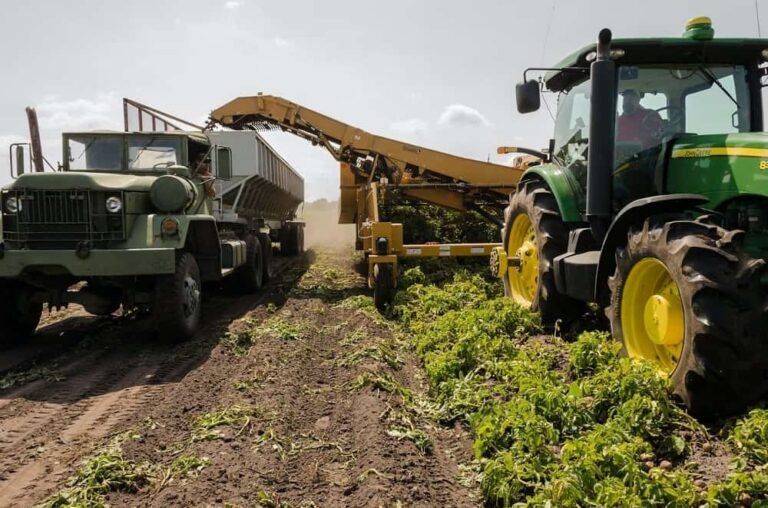How Better Agriculture Practices Can Help Address Global Food Security Challenges

As the global population continues to grow, so does the demand for food. However, many regions face food security challenges, including limited resources, climate change, and the need to produce more food using sustainable methods. This has led to an increased focus on improving agricultural practices to help address these challenges and ensure a stable food supply for future generations. In this article, we will discuss some of the key ways better agriculture practices can contribute to addressing global food security challenges and promoting a more sustainable future for all.
What Better Agricultural Practices Can We Adopt?
Adopting better agriculture practices is critical to improving food productivity and access. In light of this, here are some of the key agricultural practices that we can adopt to address global food security challenges, with a focus on sustainable and innovative solutions.
1. Enhancing Crop Yields and Quality:
One of the primary objectives of improving agricultural practices is to enhance crop yields and quality. This can be achieved through a variety of methods, such as implementing precision agriculture techniques, which involve using technology and data to optimize planting, irrigation, and fertilization for maximum productivity.
The careful use of nitrogen fertilizer liquid, for example, can help deliver essential nutrients to crops more efficiently, reducing waste and promoting healthier, more abundant harvests. Other approaches, such as breeding crops for higher yields or improved resistance to pests and diseases, can also contribute to enhanced food production.
2. Promoting Sustainable Farming Practices:
Sustainable farming practices are essential for preserving natural resources and maintaining the long-term viability of agricultural land. These practices include crop rotation, conservation tillage, and the use of cover crops, which can help to maintain soil health, reduce erosion, and support biodiversity.
Additionally, the adoption of integrated pest management (IPM) strategies can minimize the reliance on harmful chemical pesticides, reducing their impact on the environment and human health.
3. Adopting Climate-Smart Agriculture:
Climate change poses significant challenges for agriculture, including shifting weather patterns, more frequent extreme weather events, and increased pressure on water resources.
To address these challenges, farmers need to adopt climate-smart agriculture practices that promote resilience and adaptability. These may include diversifying crop types, implementing water-saving irrigation techniques, and utilizing drought-tolerant or flood-resistant crop varieties.
By adopting climate-smart practices, farmers can better adapt to changing conditions and ensure a stable food supply.
4. Reducing Food Waste:
An estimated one-third of all food produced globally is wasted, representing a significant loss of resources and contributing to food insecurity. Improving agricultural practices to minimize post-harvest losses can play a crucial role in addressing this issue.
This may involve investing in better storage and transportation infrastructure, as well as promoting the use of technologies that extend the shelf life of perishable products. By reducing food waste, we can make more efficient use of existing resources and help alleviate the pressure on the global food supply.

Supporting Smallholder Farmers
Smallholder farmers play a vital role in global food production, particularly in developing countries where they often represent the majority of agricultural producers. Supporting these farmers through better access to knowledge, resources, and technology can help improve their productivity and contribute to food security.
This may involve providing training in sustainable farming practices, facilitating access to credit or insurance, and promoting the adoption of innovative agricultural technologies that can boost yields and reduce labor requirements.
Encouraging Biodiversity and Agroecology
Biodiversity is crucial for the long-term stability of agricultural systems, as it helps maintain ecosystem functions and resilience.
By promoting biodiversity and agroecological practices, such as intercropping and agroforestry, farmers can enhance ecosystem services, including pollination, pest control, and soil fertility. These practices can also contribute to climate change mitigation by sequestering carbon in the soil and vegetation.
Conclusion
As the world faces mounting food security challenges, it is essential that we continue to focus on improving agricultural practices to ensure a sustainable and abundant food supply.
By enhancing crop yields and quality, promoting sustainable farming practices, adopting climate-smart agriculture, reducing food waste, supporting smallholder farmers, and encouraging biodiversity and agroecology, we can make significant strides in addressing these challenges and securing the future of our global food system.
It is crucial that governments, businesses, and individuals work together to invest in and promote better agricultural practices, as well as support research and development in this field. By doing so, we can not only help alleviate hunger and malnutrition but also contribute to a more sustainable, resilient, and prosperous world for generations to come.
Read also: Reasons Many Agribusinesses Fail





